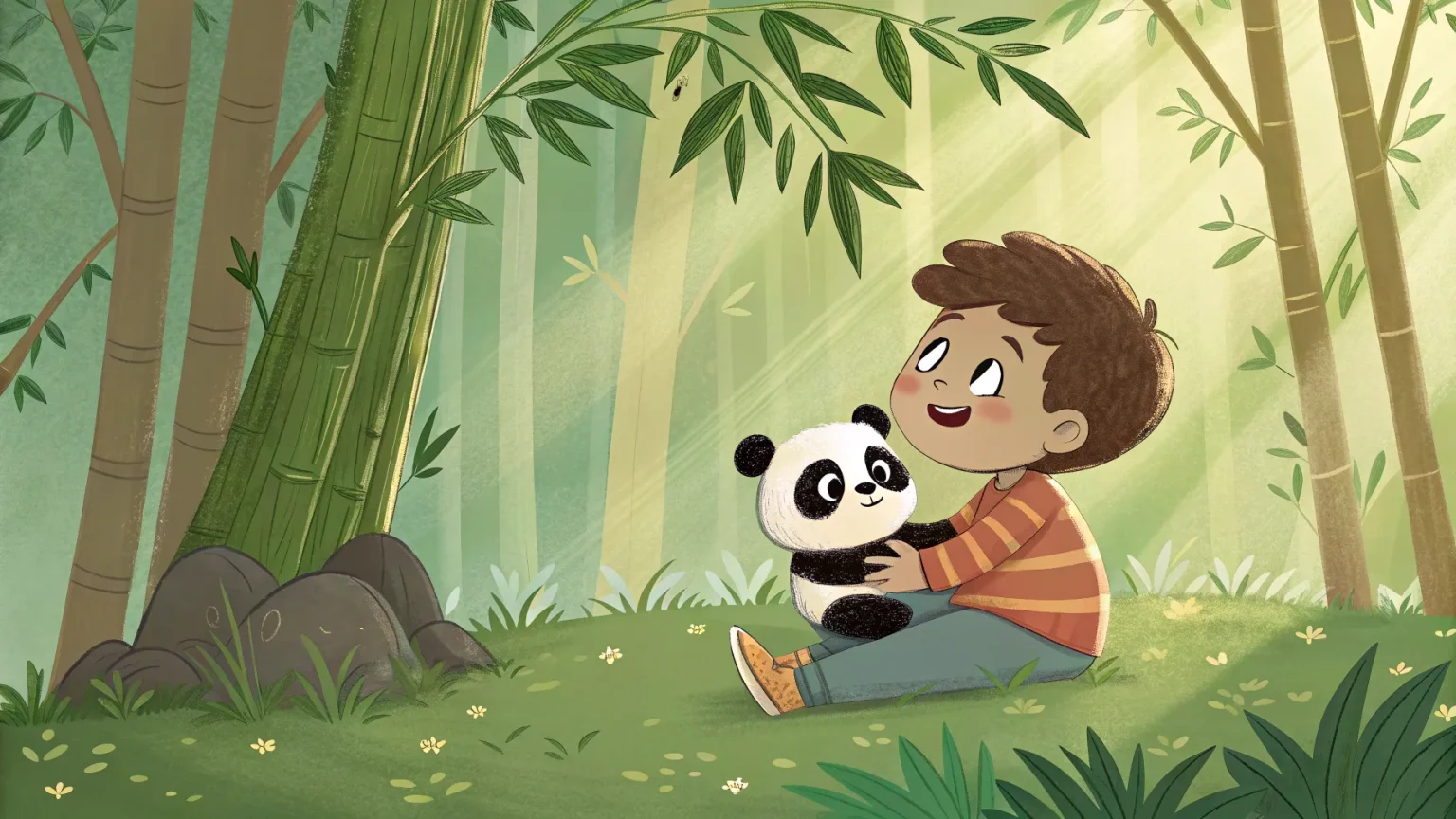I received a beautiful story from my seven-year-old grandson, Elijah, today that stopped me in my tracks. His simple tale about a panda with “magic bamboo” contains wisdom that many of us adults struggle to grasp even after decades of life experience.
In Elijah’s story, a panda relies on “magic bamboo” to help him focus on the good over the bad. When bugs destroy his bamboo, the panda becomes angry and loses his positive outlook. A wise frog appears and reminds the panda that he can “still think about the good without the magic bamboo.” The panda listens, regains his positive mindset, and discovers he doesn’t need the external object after all.
The Adult Versions of “Magic Bamboo”
This charming tale made me reflect on how often we adults rely on our own versions of “magic bamboo” – external objects, circumstances, or achievements we believe we need to feel grateful or happy. We tell ourselves stories like:
- “I’ll be happy when I get that promotion”
- “Life will be better once I have more money”
- “I can’t be content until I find the perfect relationship”
We become dependent on these external factors, and when they’re threatened or taken away (like the panda’s bamboo being eaten by bugs), we lose our ability to maintain perspective and gratitude.
View this post on Instagram
The Power of Choosing Our Focus
What strikes me most about Elijah’s story is the profound truth it contains: gratitude is a choice we make regardless of circumstances. The panda didn’t need magic bamboo – he had the capacity within himself all along to “think about the good things.”
In my work with business leaders, I’ve seen how this principle plays out. The most effective and resilient leaders aren’t those with perfect circumstances; they’re the ones who maintain perspective and find reasons for gratitude even during challenges. They understand that focusing on what’s working provides the energy and clarity needed to address what isn’t.
Once upon a time, there was a little panda. He loved thinking about the good things, not the bad things with his magic bamboo.
The wisdom of children often cuts through our adult complications. Elijah’s story reminds me that gratitude isn’t dependent on everything going right. It’s a practice we can choose regardless of circumstances – a mental muscle we can strengthen through consistent use.
Finding Our “Wise Frogs”
Another valuable element in the story is the wise frog who helps the panda regain perspective. We all need these voices in our lives – people who can gently remind us of our capacity for gratitude when we’ve lost sight of it.
Who serves as your “wise frog”? Consider the people who:
- Help you maintain perspective during difficult times
- Remind you of your strengths when you forget them
- Call you to your higher self when you’re stuck in negativity
These relationships are invaluable. I’m fortunate to have several such people in my life, and I try to serve in this capacity for others as well.
Gratitude as a Daily Practice
The final lesson I take from Elijah’s story is that gratitude grows stronger with practice. When the panda chose to “think about the good things” again, the story tells us “the frog’s words made the magic bamboo grow.” This suggests that our capacity for gratitude expands as we exercise it.
I’ve found this to be true in my own life. Starting each day by identifying specific things I’m grateful for sets a tone that helps me navigate whatever challenges arise. Ending the day with similar reflection helps process experiences in a way that builds resilience rather than resentment.
Today, I’m especially grateful for Elijah and all my grandchildren who continue to teach me important life lessons through their innocent wisdom. Their perspective reminds me that sometimes the most profound truths are also the simplest.
Who are you grateful for today? And what “magic bamboo” might you be able to let go of, knowing that your capacity for gratitude exists within you regardless of external circumstances?







